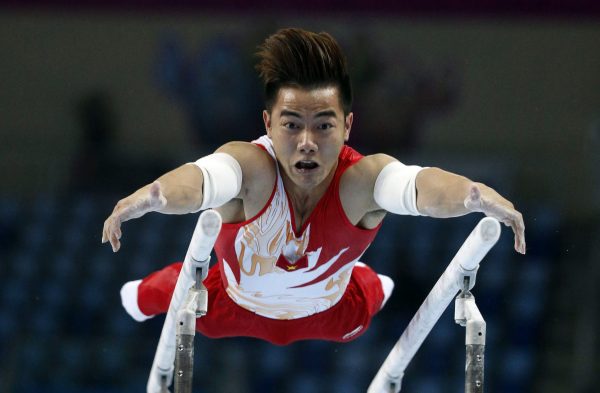By now it is clear that Trump will govern as he campaigned: without long-term strategy and with little interest in any assessment of consequences. Not surprisingly, some 60 per cent of top US diplomats have resigned and key foreign policy positions remain unfilled. Clearly, Washington is in no position to chart a clear course for the United States’ key relationships around the world.
Vietnam’s carefully crafted policy of non-alignment — by which Hanoi has skilfully exploited big-power rivalries to balance economic and political interests — now requires a major update. During the APEC summit in Da Nang, Trump stood in front of the leaders of the foremost multilateral institution in the region and waxed about a free and open Indo-Pacific, at the same time heaping criticism on multilateralism. Trump offered bilateral deals to any takers but with the caveat that he wanted to see the United States ‘win’ what he considers a zero-sum game. That kind of deal is not likely to find many takers.
Unlike Trump, Xi Jinping has a plan to make China great again. Speaking at APEC after Trump, China’s president offered a vision of the shared benefits of a free-trading region. Vietnamese officials were smitten with Xi’s willingness to dispense with protocol during the APEC forum. In his speeches, with a wink at the United States, Xi offered a mutually beneficial deal in which trade and investment are not zero-sum games, and he assumed the leadership mantle on economic openness in Asia. While Trump adopts China’s earlier, failed approach of ramming bilateral trade deals down smaller countries’ throats one by one, Xi is on a charm offensive with a multilateralist agenda.
While China is clearly emerging as the leader of a ‘free and open Indo-Pacific’, Vietnam may be a bright spot for Trump. Vietnamese diplomats hurry to say that Hanoi will pursue a bilateral deal with Washington, less for its economic gains than for its symbolic value. Vietnam’s US$32 billion trade surplus with the United States makes it vulnerable to a bad deal in Trump’s trade war. Yet Hanoi hopes to be able to appeal to Trump’s self-regard: if Vietnam is among the very few takers of Trump’s offer, then it may be rewarded simply for showing up and giving Trump something to gloat about. And then there is the symbolism of cooperating with Washington at the same time as Beijing aims for regional leadership.
But this strategy is fraught with risk. Any deal with Trump is bound to be fickle. If the Republican Party is trounced at the mid-term elections in November 2018, congressional leaders and the Trump administration could set out on very different courses. Moreover, with no long-term strategy, any shift in domestic mood — or in his personal mood — may turn Trump against Vietnam in no time.
Traditionally, Vietnam prefers multilateral venues where no one party calls the shots. That is why any bilateral talks with Washington must be seen as bargaining chips for RCEP and TPP-11, to which Vietnam remains strongly committed. Having as many friends as possible is an important bargaining chip for a country like Vietnam, that traditionally punches above its weight, especially with respect to its big northern neighbour whose hegemonic impulses and significant claims on Vietnamese waters are cause for concern.
TPP would have made it easier for Vietnam to escape China’s orbit. That ship has sailed, at least for now. In the meantime, Vietnam is trying to improve its bargaining power for a position within that China orbit. Whether any deal with Trump is useful — or credible — is the risky bet Hanoi is now forced to make.
Thomas Jandl is a founding partner of TJMR Asia Consulting and a non-resident scholar at the Social Sciences and Humanities Department, Vietnam National University (VNU).
This article is part of an EAF special feature series on 2017 in review and the year ahead.


Just one more hit piece on Trump.
Your assertion that “… some 60 per cent of top US diplomats have resigned…” is a gross misrepresentation of an interview of the Ambassador to Panama who recently resigned. What she said was:
“….Ms Stephenson wrote that the US lost 60per cent of US career ambassadors since January, but clarified in an interview with the Public Broadcasting Service (PBS) on Wednesday that the drop was from five career – or four star- ambassadors to two….”
http://www.bbc.com/news/41921907
Many main stream media outlets neglected to include the clarification, as did you.
You misrepresent what is actually happening at the State Department where a whole lot of fat needs to be cut to make it a better, more efficient governmental office. But the whole point of the article is to attack Trump so why should you look to honest reporting which might not support your underlying premise?
Indeed, the 60% number has been reported repeatedly and I did not double- or multiple check it. Yet the statement is only an illustration of the broader problem. At last year’s Vietnam National Day celebration at the Embassy, for example, there was nobody to invite, since all the relevant positions remained unfilled. And in many cases not just unconfirmed, but unappointed.
Not only that, but we have learned about appointments being proposed by Tillerson and vetoed by Trump. There is no plan here. You can find any number of data to make the case. We have seen several comparisons of number of appointment at various points in time since the new administration came in, and the numbers are in different galaxies between Trump versus Obama or Bush before him. And how State will be made better when everybody you ask only talks about being demoralized is another discussion in itself. I live in the Washington region, many of my friends are career government employees or contractors in various departments, and demoralized career people are NOT fake news.